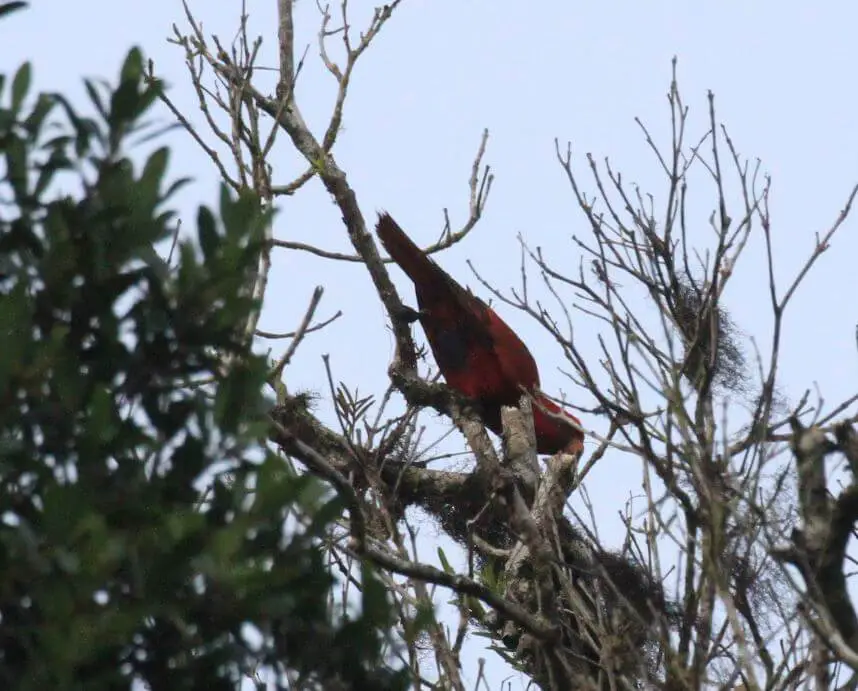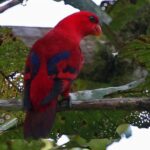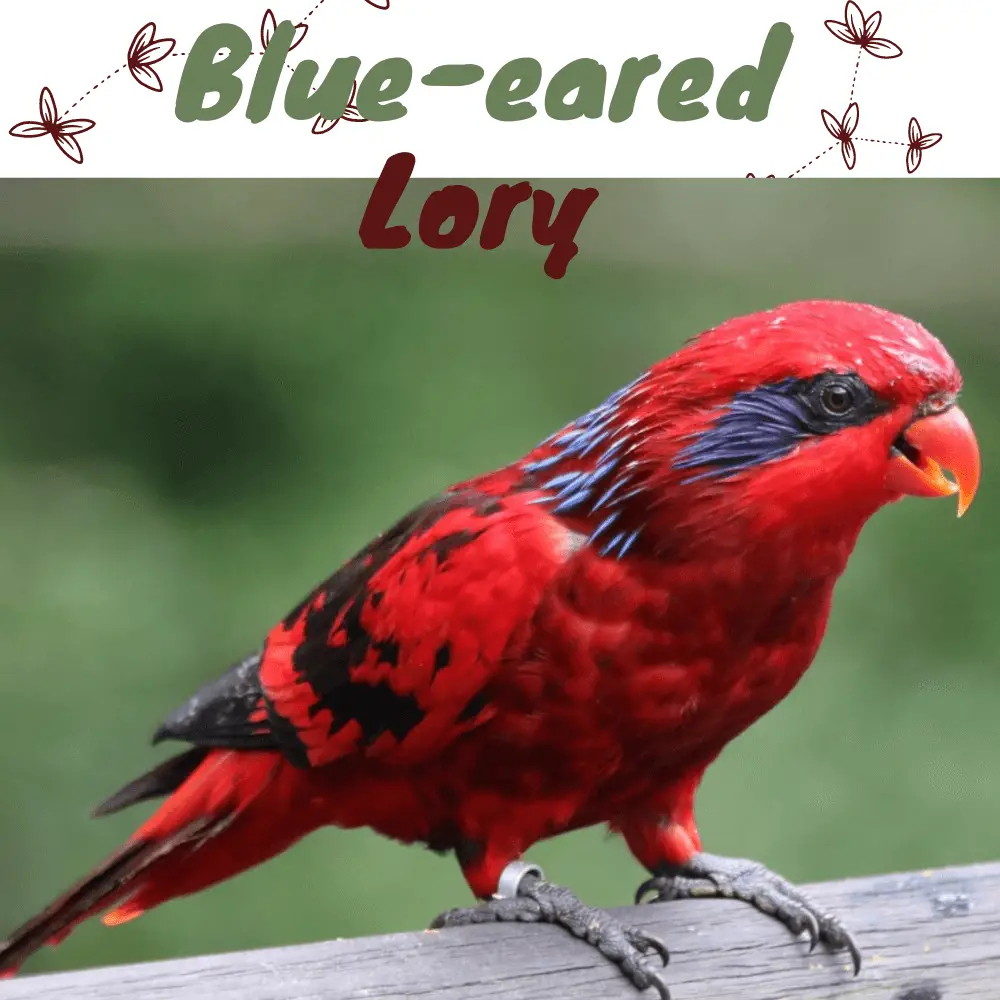Blue-eared Lory 24 cm. Red; bill orange; the area from the base of the bill under eye and onto ear-coverts violet-blue; belly to under tail-coverts violet-blue; primaries black with a red speculum; secondaries tipped black; tertials tinged blue; tail reddish-brown above; legs grey. Immature duller, with much less blue.
Systematics History
Monotypic.
Subspecies
Monotypic.
Distribution
Mountains of Seram (Moluccas).
Habitat
Forest in mountains, above 1350 m; ranges out of the forest up into tree heathers, occasionally down to 800 m.
Movement
No information; possibly some altitudinal shifts occur seasonally.
SOURCE: obirds
Diet and Foraging
Blue-eared Lory eats Nectar, taking tree heather at highest altitudes.

Sounds and Vocal Behavior
Very similar to that of E. bornea; although both species are somewhat variable, the calls of the present species are generally considered to be less harsh and grating.
Breeding
No information is available.
SOURCE: Bird Jamboree
Conservation Status

Not globally threatened. CITES II. A BirdLife “restricted-range” species. Reported to be common to locally abundant, with little current threat from logging,
but species are now being trapped, and could also suffer from fires within its very limited altitudinal range; careful monitoring is required, along with research to establish ecological requirements.





















